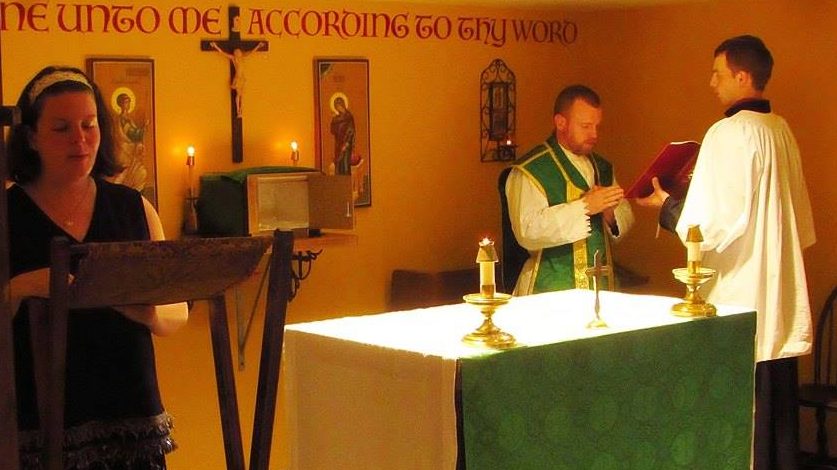Mea culpa!
Next let’s look at the Penitential Act. We looked at Form B before. Now I want to look at Form A. Here we have the English translation currently in use, followed by the original Latin text, and finally the new translation going into effect this Advent. I have highlighted the differences.
I confess to almighty God, and to you, my brothers and sisters, that I have sinned through my own fault, in my thoughts and in my words, in what I have done, and in what I have failed to do; and I ask blessed Mary, ever virgin, all the angels and saints, and you, my brothers and sisters, to pray for me to the Lord, our God.
Confíteor Deo omnipoténti et vobis, fratres, quia peccávi nimis congitatióne, verbo, ópere et omission: mea culpa, mea culpa, mea maxima culpa. Ideo precor beátam Maríam semper Vírginem, omnes Angelos et Sanctos, et vos, fratres, oráre pro me ad Dóminum Deum nostrum.
I confess to almighty God and to you, my brothers and sisters, that I have greatly sinned in my thoughts and in my words, in what I have done and in what I have failed to do, through my fault, through my fault, through my most grievous fault; therefore I ask blessed Mary ever-Virgin, all the Angels and Saints, and you, my brothers and sisters, to pray for me to the Lord our God.
The first change we notice is the addition of the word “greatly.” We will now be saying, “I have greatly sinned.” But the most notable change is the restoration of the three-fold self-accusation. In the Latin we say mea culpa, mea culpa, mea maxima culpa. This is a very familiar phrase in our culture. I know even non-Catholics who, when admitting a mistake, use the phrase mea culpa. That three-fold repetition of our admission of guilt is something that was part of the rhythm of our Catholic liturgy for centuries, which is one reason why that phrase has now become part of our cultural heritage. In our current English translation, we were robbed of that rhythm.
Also, in literature – and this is true of poetic and narrative literature, as well as for Sacred Scripture and prayer – when something is repeated it is meant to give it emphasis. As a literature student in college I was taught that repetitions such as this were not accidental. The author, by repeating a word or a phrase, is trying to underscore something of great importance to the theme of his or her work.
The liturgy is very much akin to literature, borrowing heavily as it does on the Scriptures, that divine literary genre. As any translator of great literature should know, it is important to preserve any literary devices used by the author in the original. That emphasis on our personal culpability was there in the three-fold repetition of the original liturgical text. It has been missing from our current translation. The English major in me is happy to see it restored. And the faithful Catholic in me will surely benefit from being reminded as I pray the liturgy just who is at fault for my sins.

